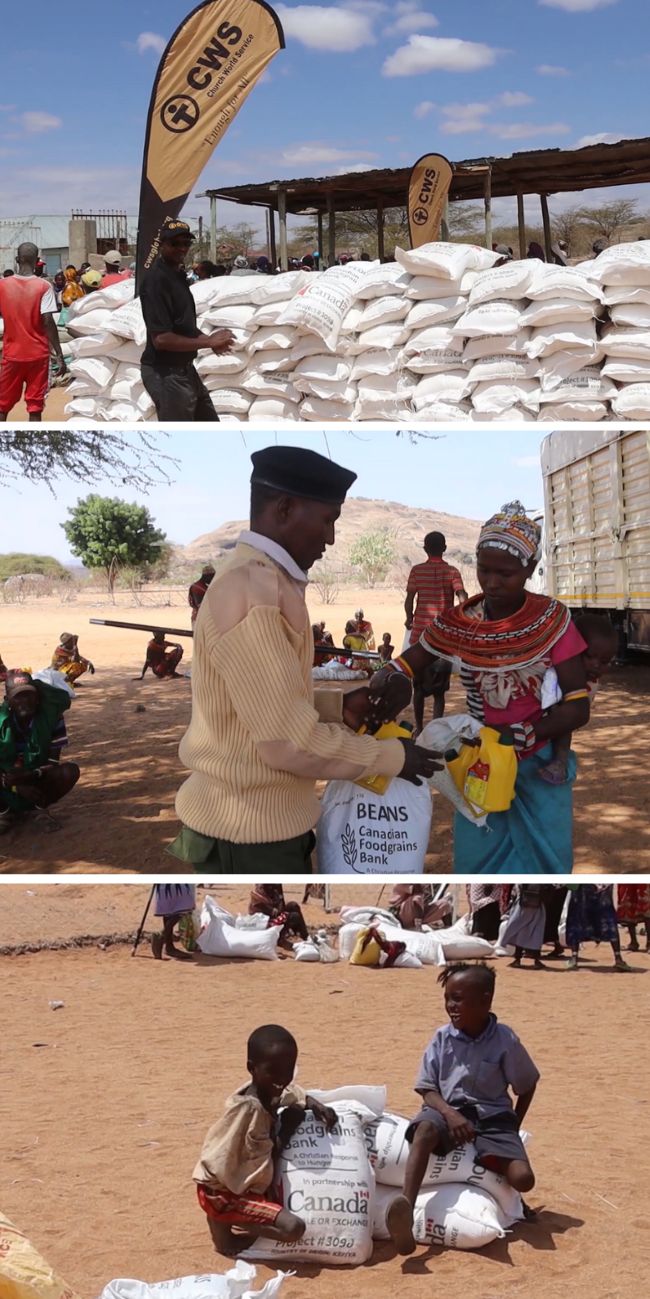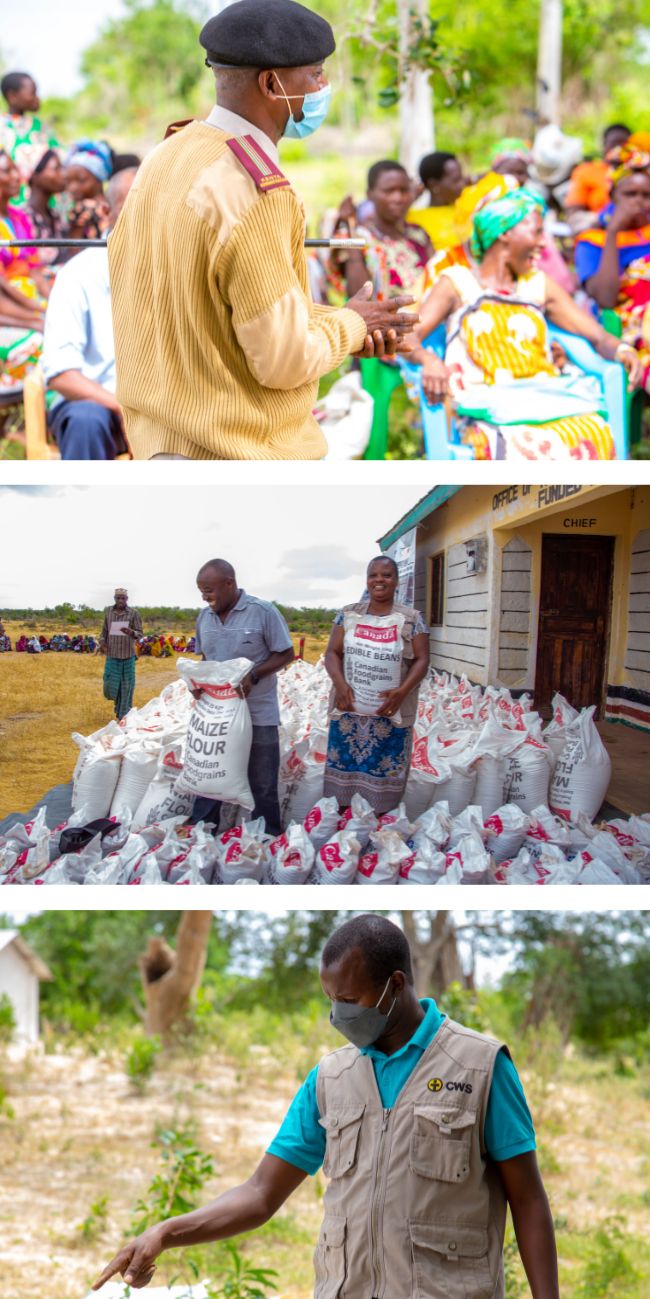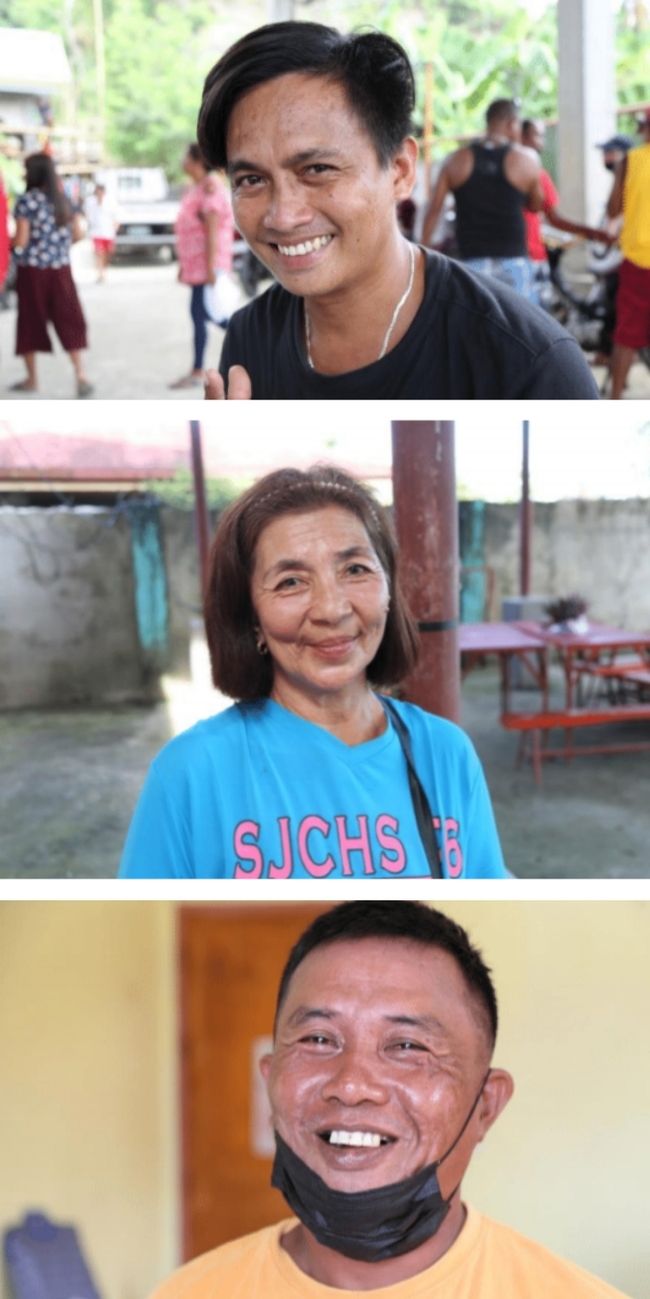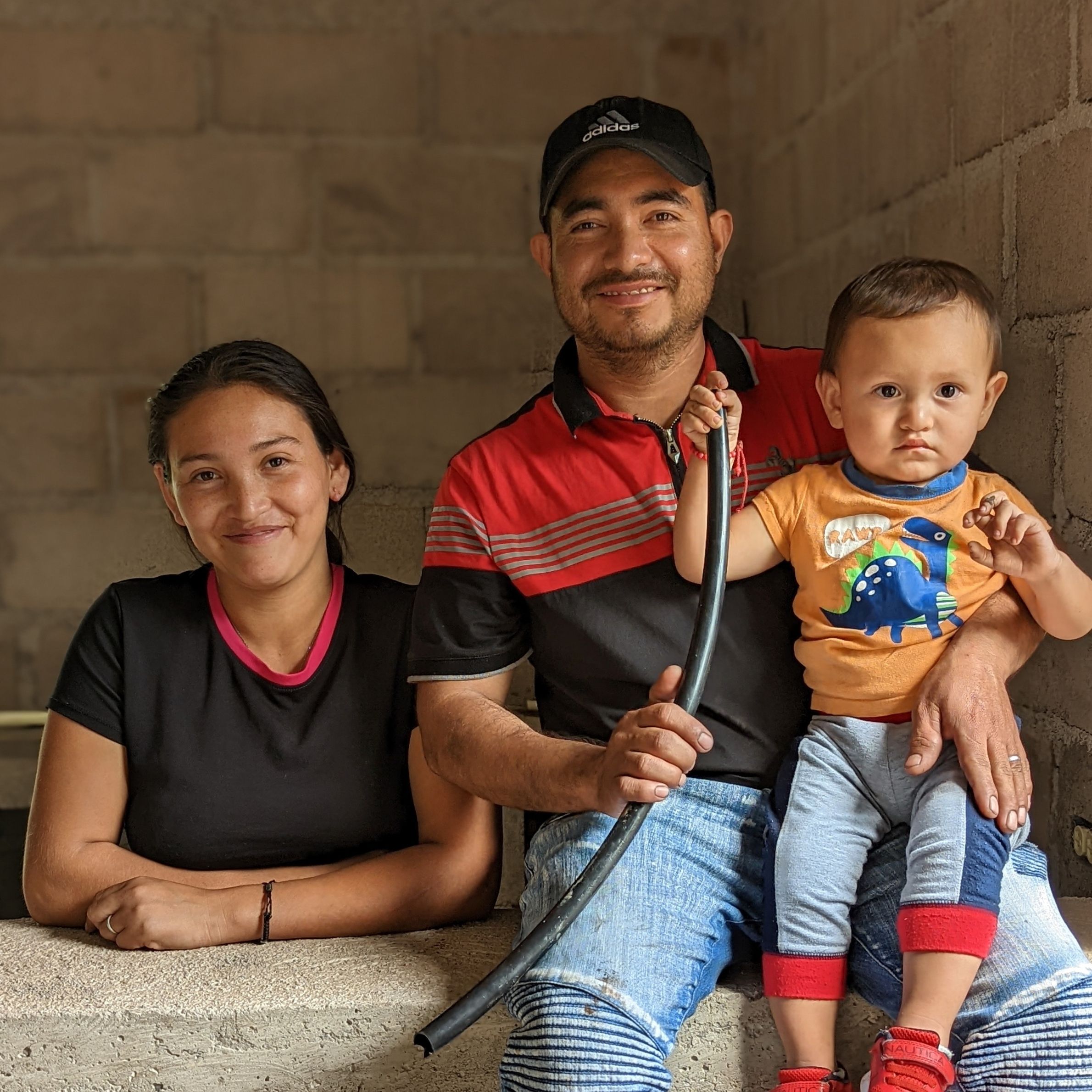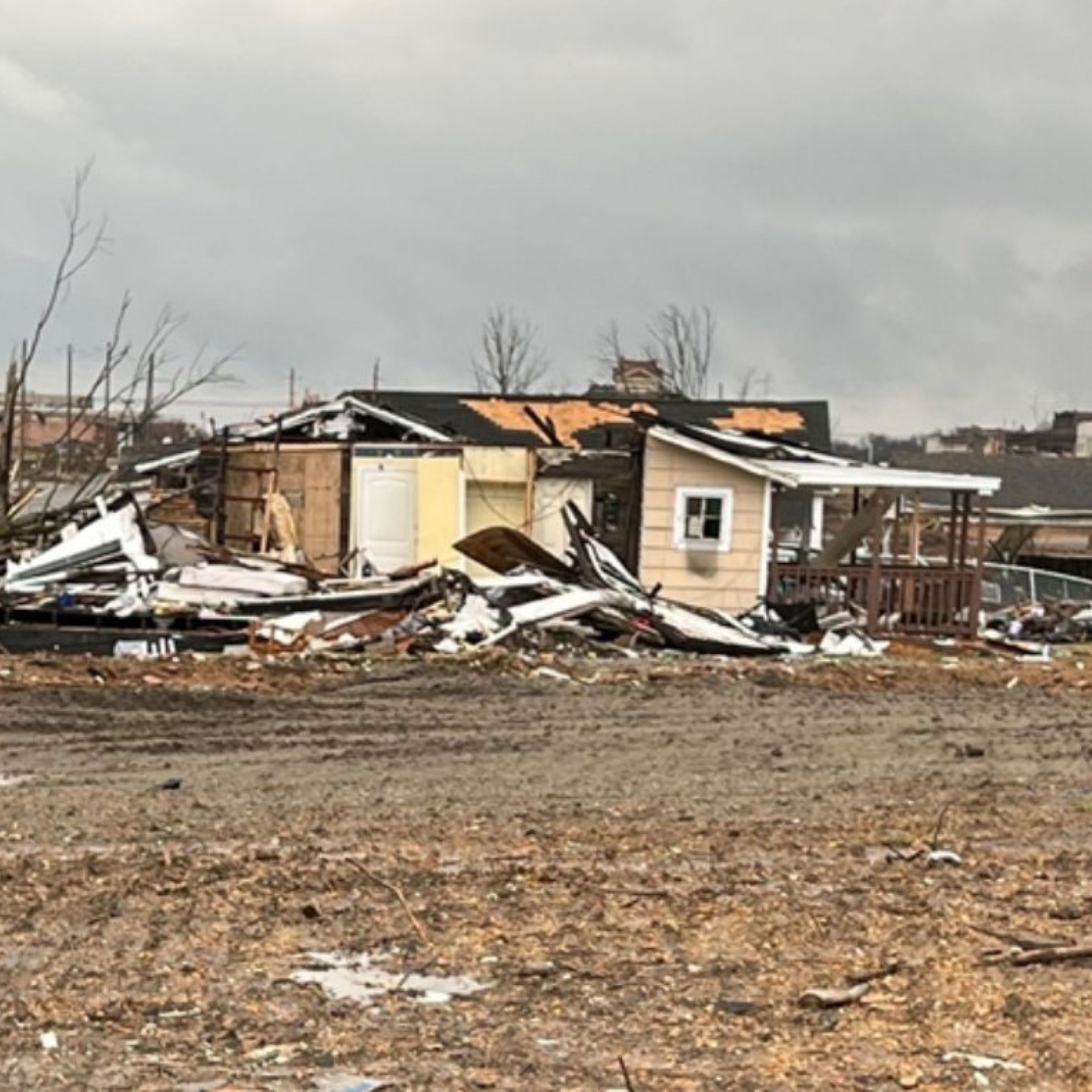When looking through the photos from the deadly floods in Pakistan, one main word comes to mind: loss. Thousands of lives, entire communities and the livelihoods of millions have been lost to the raging waters. To understand the gravity of this loss, our partner, Community World Service Asia, has been on the ground visiting communities and speaking with locals. For …
Stories of Change
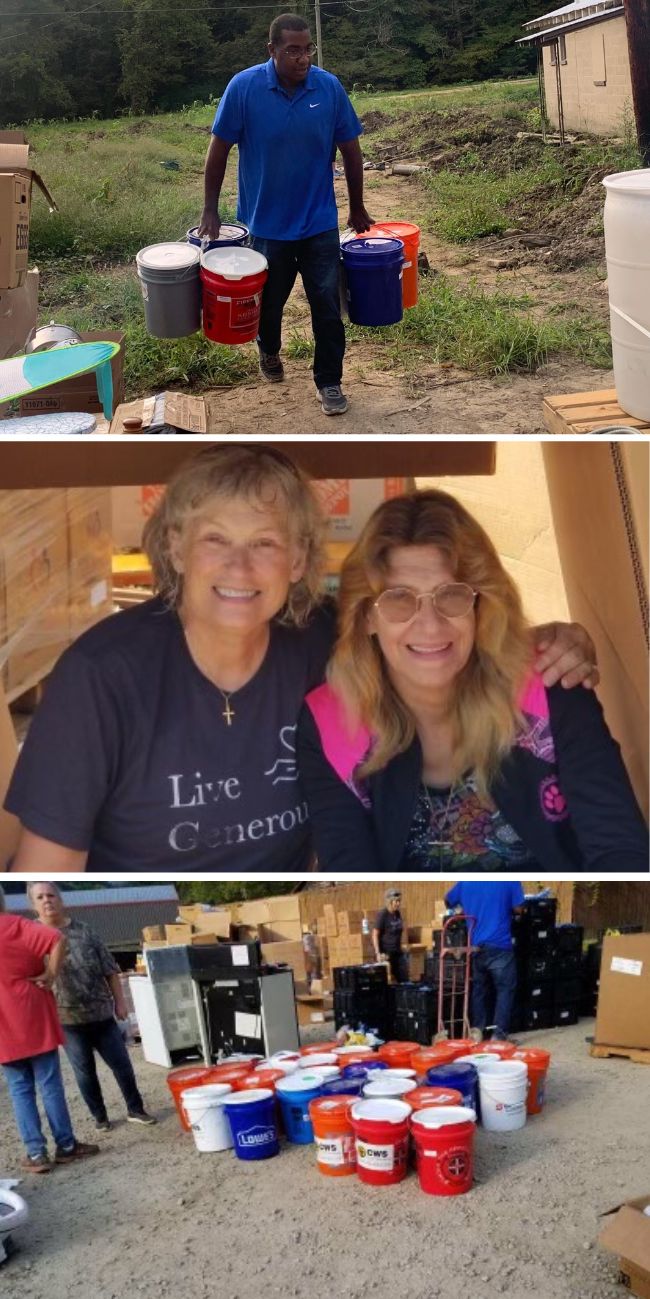
Top: Reginald, Manna from Heaven volunteer, carries CWS Cleanup Buckets; Middle: Cindy and Lois (founder of Manna from Heaven) at distribution event; Bottom: CWS Buckets ready for distribution in Kentucky
Saving Homes and Changing Lives
Have you ever imagined what it would be like to wake up one night to the sound of rushing water flooding your home? How it would feel to see your belongings get destroyed or washed away? For most of us, the answer is probably no. We don’t think a natural disaster might affect us…until it does.
For Sandy Gunnell, when her 90-year-old mother was impacted by the recent flooding in Kentucky, she couldn’t believe what was happening. She shared, “I received a phone call from my family at 3 a.m. that my mom’s house was being flooded. I thought it was a prank call as we had not received an undue amount of rain. But upon trying to get to her house I soon found out that the town of Wayland was totally under water from a flash flood situation.”
Sandy also recalled the testimony of Ronnie and Jenifer Patton, who live in Estill in Floyd County, Kentucky. “They watched everything they had worked for slowly fill up with water and watched a lot of their stuff float out of their house and down the now swollen creek,” she said.
The Pattons and the Gunnells are amongst the thousands of families affected by the flooding in Kentucky. Sandy explained, “everyone we know has suffered some type of damage to their property or homes.” Despite the loss and devastation that has come from the flooding, Sandy is optimistic and stated, “we will stick together until everyone has been able to return home.”
Sandy is the director of the disaster relief non-profit, Sisters of Hope, and has been helping distribute CWS Emergency Cleanup Buckets and Blankets to those affected by the disaster. She shared that the Patton family was “very appreciative of the donations of blankets and cleanup buckets from CWS,” and added that her family will also use the buckets to help clean her mother’s home.
In the nearby town of Myra, Cindy Zorn echoes the same optimism and desire to help. Through a local organization, Manna from Heaven, Cindy has spent about a decade combating food insecurity in Myra. Following the heavy rains, the Manna from Heaven office was drowned in about six feet of flooding. Cindy recalled that the organization lost all of its recent food deliveries, six refrigerators and six freezers.
In response, Manna from Heaven has been distributing food donations and CWS Buckets and Kits. Cindy explained that for many communities in rural Kentucky, reacting to natural disasters is especially difficult due to poverty and the remote nature of their towns. She said, “The closest hotel to stay at is about 15 miles away and the closest supermarket is 15-20 miles away…they are kind of the forgotten people and the most vulnerable. To be able to hand out buckets to the most vulnerable people is truly a blessing.”
Manna from Heaven is continuing to distribute kits and buckets to their community. Cindy shared, “people are asking about the buckets, they’re using them, they’re picking them up for their neighbor, they’re thrilled to have them.” She added, “to come together and create these buckets as a family or a church group, you’re not just filling buckets, you’re saving someone’s home, you’re changing lives.”
From the hands of volunteers to the local organizations that distribute them to the communities that use them, CWS Kits and Blankets are bringing communities together and ensuring that no one is ever forgotten.
Click here to learn more about how you can join us as we respond to disasters in Kentucky and around the world.

